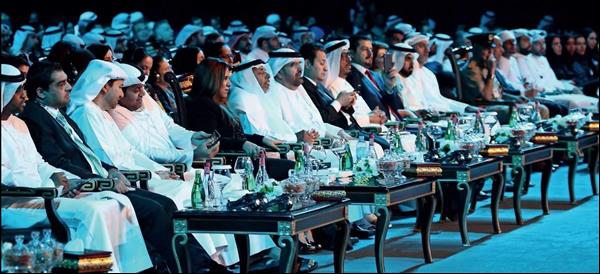
UAE's legislation process should adapt to changes in technology
At a panel discussion titled 'The Role of Legislation in Empowering Knowledge Economy' on Wednesday, where lawmakers and lawyers discussed how the UAE laws can keep up with the Fourth Industrial Revolution, as well as other commercial activities.
Dr Habib Al Mulla, executive chairman of law firm Baker and McKenzie Habib Al Mulla, said that laws need to be adapted more quickly. "The local legislations are also leading the economy. They are more flexible and also try to cope and move forward," Dr Al Mulla said. "I think the issue we have is when it comes to the federal level, naturally the process itself is slower because you have different bodies involved."At the same time, one of the complications in the federal level is that we have a mismatch between the visions the government has with the economy. We are talking about artificial intelligence and smart government, and that's the level the executive branch is looking at. But then we have our laws that are very slow in adapting to these changes. At the same time, even when they make the change, by the time that change is made, I would say it is almost outdated.
"For example, the company law - we waited about 10 or 15 years for that law to come and by the time it came, the circumstances and that (kind of) economy had passed. Yes, there are many changes to be made."Responding to Al Mulla's comments at the panel discussion, the director of the legislation department at the General Secretariat of the Supreme Legislation Committee, Dr Mansoor Abdul Rahman Al Osaimi, said technology will be part of the legislative process in the UAE.
"People around the world are saying parliaments are stopping future advantages. Why? Because what the parliament is doing is stopping people from going too fast and then regret the speed of the changes and technologies. What I believe is that technology will be part of our lives and, therefore, technology will be part of the legislative process in the future. I believe every legislative (body) will be able to adopt these changes when it comes to technologies, or else they'll become outdated," Dr Al Osaimi said.Khaleej Times asked Dr Al Osaimi on the sidelines of the panel if laws regarding self-driving cars were being drafted yet at his committee. He responded that legal experts are working on producing laws that will allow residents to use autonomous vehicles. However, they will not be implemented "anytime soon".
Commenting on the lack of laws for usage of autonomous vehicles, Dr Al Mulla told Khaleej Times: "I think that's a good example of how technology is going faster than legislation and where legislation is, in fact, lagging behind technologies like these. We need to accelerate and expedite the process of transforming our regulation so that it can adapt to and best serve a knowledge-based economy."

Legal Disclaimer:
MENAFN provides the
information “as is” without warranty of any kind. We do not accept
any responsibility or liability for the accuracy, content, images,
videos, licenses, completeness, legality, or reliability of the information
contained in this article. If you have any complaints or copyright
issues related to this article, kindly contact the provider above.


















Comments
No comment